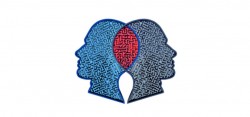What is Codependency in Addiction and Why is it Dangerous?
If you have a relative or loved one who has serious drug or alcohol abuse issues, then the question of codependency may be one that is applicable to you. NCBI describes codependency as any individual with a relative who has psychological or behavioral problems of any sort. If this definition fits you or a friend, then it is important to know how this codependency can affect you.
Behavioral Changes
One primary danger of codependency is that it can greatly alter your own behavior, as you shape your life to meet the needs of the loved one in your life who is experiencing the problems. This can lead to low self-esteem, compromise in values and oversensitivity, all of which can be extremely damaging to a person’s health and well-being.
You may find yourself in a relationship, being loyal to someone who does nothing to deserve your loyalty or provide it in return, which can be an extremely confusing and lonely relationship.
Can Codependency be Avoided?

A codependent person will change their behaviors and lifestyle in order to accommodate their loved one.
A question that may arise is how can you love an addicted family member without becoming codependent? It may be difficult to balance between loving the addict and not letting their unhealthy lifestyle dictate your life.
According to NIDA, a codependent comes to believe that their love and security rely on them taking care of the addict in the way that the addict wishes. When an individual starts to live their life catering to the needs of the addict, to the point where their lives are basically controlled by this addictive behavior, this is when codependency arises and the danger presents itself.
You can work to avoid this by knowing, even while you love the person, that their addiction is unhealthy and harmful, and that you shouldn’t cater to it in any way. This may be a difficult line to walk, but you shouldn’t let the abused substance dictate both the addict’s and your own life. Not only does it present danger to you, but it also can promote further dependency of the addict.
Dealing with Codependency
As far as how to deal with the issues that may arise from codependency, there are many support groups available that are focused on specific groups, such as children of alcoholics, spouses, adult children, and more. Family therapy is highly suggested so that the entire family can grow and unite from the recovery process together.
Even if an addict doesn’t have close family, there is still likely to have been extended family that was pushed away during the addiction and would be willing to help and take part in the family therapy. Studies have shown that family therapy can be a great motivator and a way to reconnect a family after a difficult situation, as it is intended to help not only the addict, but also the family that suffered second-hand.
If you or a loved one are at risk of being a codependent, you can call 888-647-0051 (Who Answers?) to speak with a caring specialist who can answer your questions and guide you through the next steps. This can be a scary and difficult time, so it is important to find professional advice as well as emotional support through it all.
https://www.disorders.org/the-emotional-toll-of-drug-and-alcohol-addictions-on-the-family/





